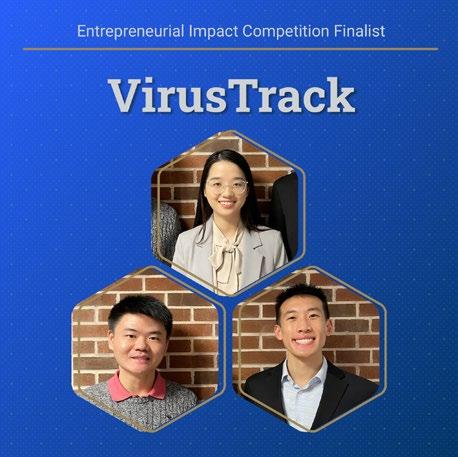
1 minute read
Virus Track
from 2021-2022 Annual Report | School of Civil and Environmental Engineering
by School of Civil and Environmental Engineering at Georgia Institute of Technology
Wensi Chen Zeou Dou Eric Mei
Wastewater surveillance testing is an emerging epidemiological tool to monitor municipal sewage for traces of infectious pathogens, like Covid-19, in entire communities. Through wastewater testing, researchers can confirm whether a viral pathogen is present in the population and whether transmission is increasing or declining.
Advertisement
A limiting factor is that this process requires refrigeration for virus sample handling, so the high-cost cold chain processes greatly limit the implementation of large-scale virus surveillance.
The VirusTrack team, comprised of environmental engineering PhD candidates Wensi Chen and Zeou Dou and undergraduate student Eric Mei, created a sampling and storage technology that doesn’t require refrigeration.
Through their low-cost and reliable solution, packed viruses can be stabilized and preserved for a prolonged period at room temperature before extraction for testing, which could help to facilitate and expand the coverage of the surveillance network.




